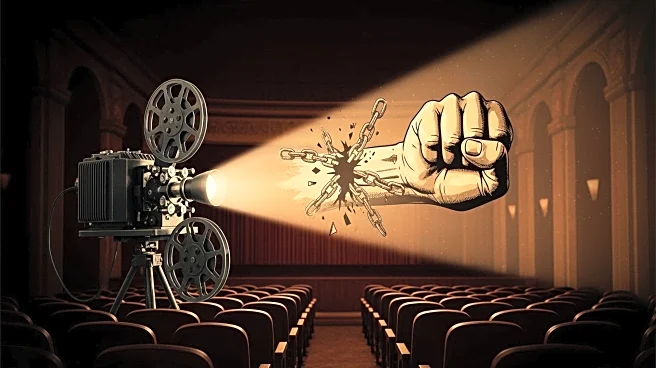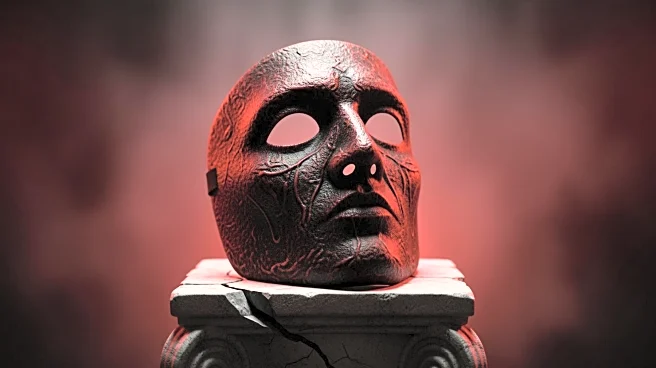What's Happening?
Charlie Chaplin's film 'The Great Dictator' is celebrated for its bold stand against fascism, using Chaplin's resemblance to Adolf Hitler to parody the Nazi leader. Released before the full extent of Nazi crimes
was known, the film features Chaplin as Adenoid Hynkel, a satirical version of Hitler, and a Jewish barber mistaken for Hynkel. The film's climax includes a powerful speech advocating for humanity and democracy. Despite initial resistance from Hollywood studios, Chaplin financed the film himself, aiming to use comedy as a tool against totalitarianism.
Why It's Important?
'The Great Dictator' remains a significant cultural artifact, demonstrating how art can challenge oppressive regimes. Chaplin's use of satire to critique fascism highlights the power of film as a medium for political commentary. The film's release during a time of diplomatic ties between the U.S. and Nazi Germany underscores its boldness and Chaplin's commitment to using his platform for social change. The enduring relevance of the film speaks to the timeless nature of its message, encouraging future generations to use creativity in the fight against tyranny.









